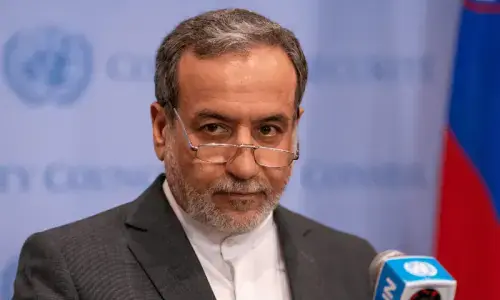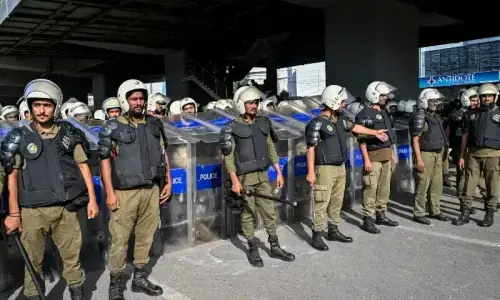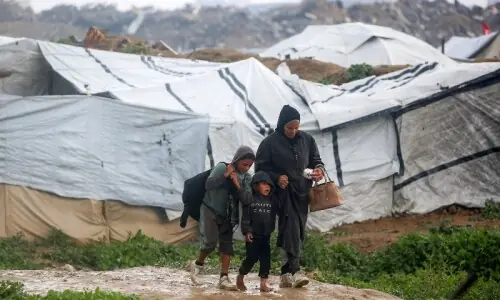THE month of May found this rational, focused nation locked in technical debates on election reforms. The outcomes were oddly and unluckily iffy. The Free and Fair Election Network (Fafen) made an impassioned plea for us to debate the proportional representation (PR) system in place of the constituency-based first-past-the-post (FPTP) one.
It says PR is fairer in giving seats to parties in proportion to their national vote tallies. In FPTP, a party may win seats with less than 50 per cent of votes cast for each seat and gain overall majority with less than 50pc of national votes. The PTI-led alliance represents only 37pc of voting, 22pc of registered and 12pc of the total population. Globally too, many say PR better represents all societal sections and allows smaller parties to win. But the more critical issue is if PR gives political stability and good governance. Fafen gives no proof of that. So, let’s first review for stability. If seats were given in 2018 along national vote tallies as under PR, PTI and its allies would have won 128 seats as against their 175-plus seats via FPTP. They would’ve lacked a majority without allying with another party/parties. That would have meant even more instability, this being true for all recent polls.
There is no proof that the PR system gives good governance.
To curb such trends, states using PR require parties to get, say, at least 5pc of national votes to get seats. If we apply that rule to recent polls, the results are stunning. In 2018, only the PTI, PML-N and PPP (in 2013 the MQM too) would have won seats. Others with 30pc of the votes would have been excluded. The big three would have won more seats than their national vote tallies, thus nixing PR’s claims on fairness and giving space to small parties. Even so, none of the three may have obtained a majority without allying with an arch-rival. So PR may result in fragmentation or in avoiding that, unfairness like the FPTP. Once PR is really used, actual vote tallies may differ. But this still highlights the risks.
Some say PR reduces the role of electables and curbs dynastic politics. Sri Lanka uses PR and yet has one brother as president and the other as prime minister while overall politics is dynastic too. Nor is there proof that PR gave good governance. If Fafen wants a serious debate on PR, it must go beyond short press releases and produce a detailed policy paper with weighty proof to remove doubts that PR may not give fairer representation, let alone political stability or good governance. Until then, we must avoid PR given the risk of further political fragmentation and weakening of political forces and strengthening of the already overly powerful non-political forces. It also strengthens top party leaders vis-à-vis other leaders and cuts the links between MPs and constituencies.
A neater solution for FPTP unfairness due to people winning with less than 50pc of constituency-level votes is to have all voters assign second choices (ranked choice method) too. Then in case the top candidate wins less than 50pc votes, there could be an instant virtual run-off between the top two candidates (rather than expensive, time-delaying actual run-offs later) by counting the second choices of voters of other candidates. This will ensure the majority party has at least 50pc of votes cast based on ranked choices nationally.
Frustratingly, Fafen is not the only key entity pushing unproven ideas. PTI is pushing for electronic voting machines for the next polls, ignoring transition issues and the problems other states using them have had. The Pakistan Institute of Development Economics held a seminar where speakers pushed some iffy ideas like PR, term durations of three to four years and staggered national and provincial elections so we have one each year. The issue with such ideas is there is no proof globally that they give political stability or good governance.
India and Bangladesh are doing much better with an electoral system like ours and are not constantly chasing wonky political ideas. Our problems of misrule can’t be tackled via electoral tinkering but via non-controlled democracy with no role for unelected institutions. Thus, our key institutions often focus on trivial rather than priority issues.
What really are the priority issues? A look at the EU 2018 election report is helpful. It makes blunt charges of pre- and post-poll rigging against powerful unelected forces. But one rarely finds Fafen and others focusing on this pervasive and pernicious source of rigging. This problem can’t be overcome via technical electoral reforms but via political mobilisation by political parties to challenge these forces, as the PDM briefly did. With its failure, the onus is on civil society to engage jointly in social mobilisation against this problem. Failing even that lonely op-ed writers will be left to keep raising the issue by themselves.
The writer is a political economist.
Twitter: @NiazMurtaza2
Published in Dawn, June 1st, 2021






























